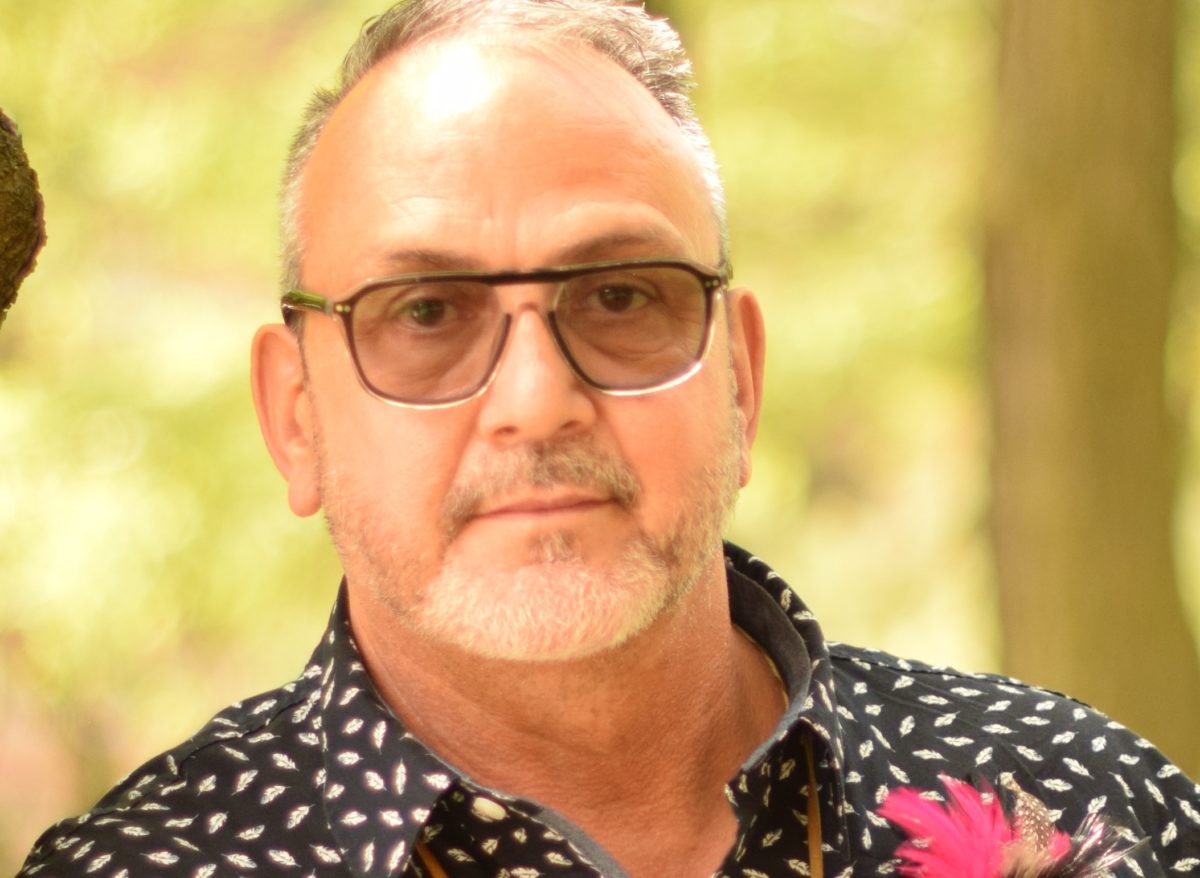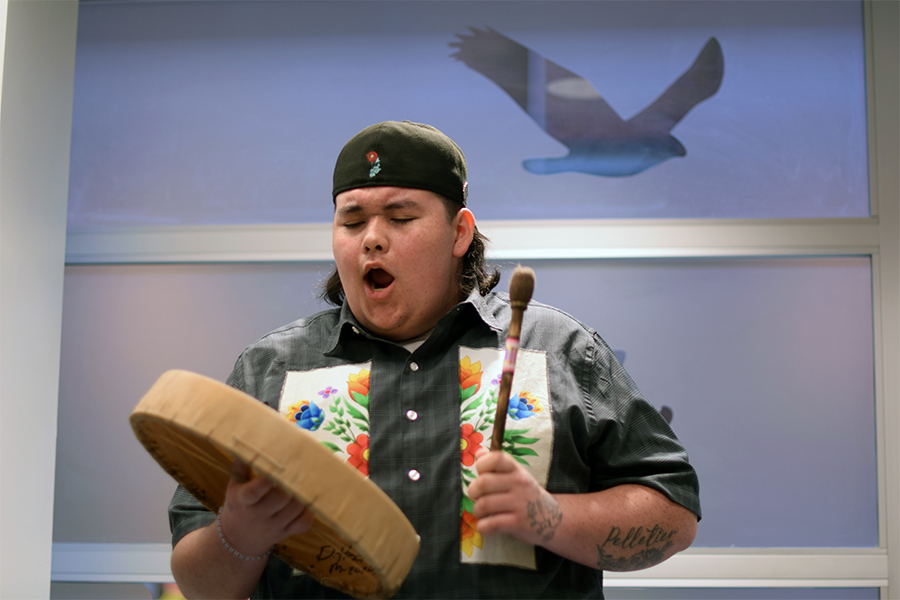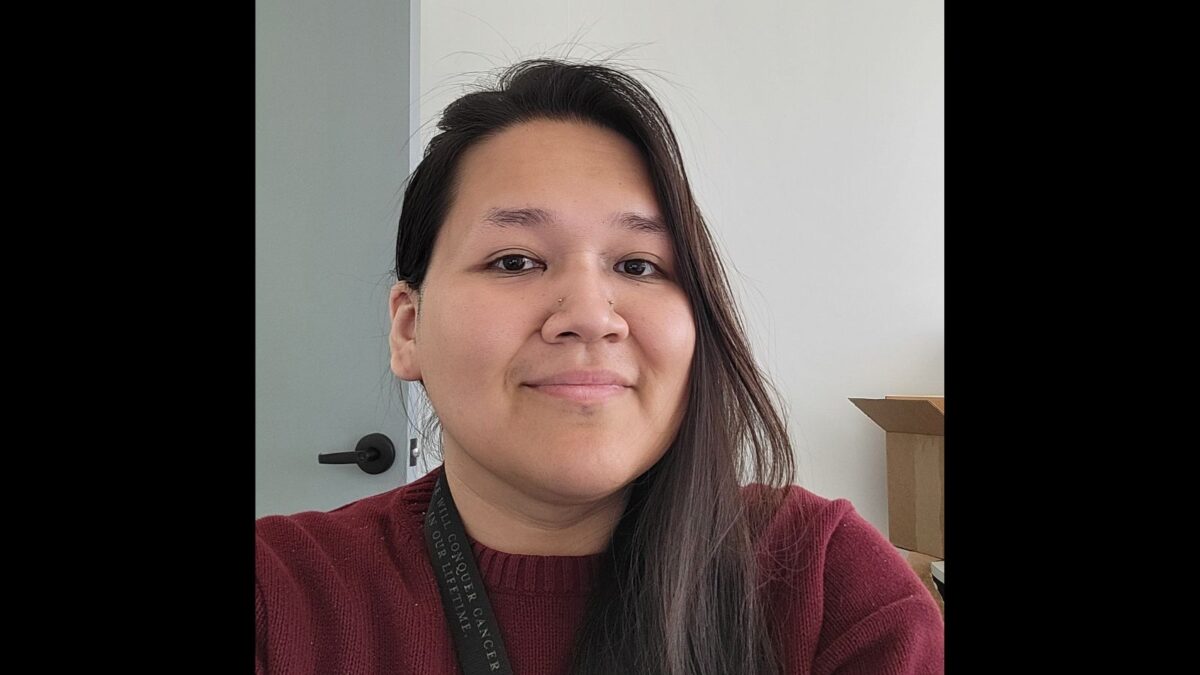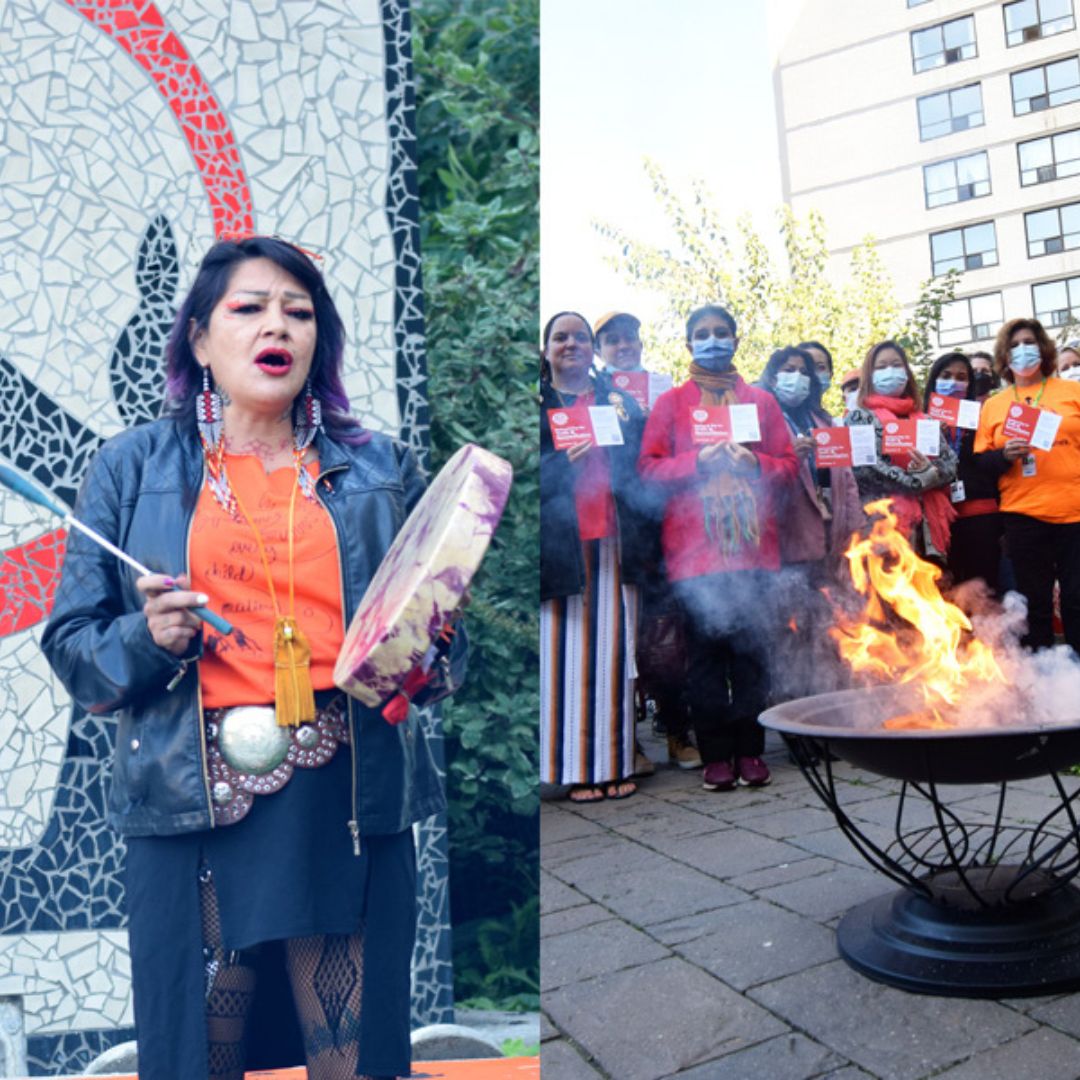UHN marks National Day for Truth and Reconciliation by acknowledging the past and planning for the future.
Published in 2015, the Truth and Reconciliation Commission of Canada’s final report includes 94 “calls to action.” These recommendations are meant to redress the legacy of residential schools and advance the process of Canadian reconciliation.
On September 30, 2021 – Orange Shirt Day and the first National Day for Truth and Reconciliation – University Health Network (UHN) committed to the 22nd call to action (CTA) for the 2021–2022 year. On September 30, 2022, it committed to the 23rd CTA for the 2022–2023 year, which promotes an increase in Aboriginal health care professionals, the retention of Aboriginal health care professionals in Aboriginal communities and cultural competency training for all health care professionals. The announcement was made during a public ceremony at the Michener Gitigan (the Anishinaabemowin word for garden) at the Michener Institute of Education at UHN. As part of its accountability to the Indigenous communities it serves and its efforts toward reconciliation, UHN has pledged to address one CTA per year through a series of goals, to which the organization will be held.
Aboriginal will be used throughout this story when referring to the CTAs, as the Truth and Reconciliation Commission of Canada uses this language. When referring to program-specific work at UHN, Indigenous will be used. Both terms refer to First Nations, Inuit and Métis peoples.

“Last year, we focused on CTA 22, where the focus was to promote and recognize the value of Aboriginal healing practices and integrate them into patient care and equity processes at UHN. The ongoing commitment from UHN to continue to honour these values laid the groundwork required to pursue further action toward reconciliation, and supports our commitment to CTA 23 for the coming year, where we will focus on cultural safety and competency training for TeamUHN; partner with various internal and external agencies to increase the number of Aboriginal professionals in the health care field; and boost training and educational opportunities within communities to support further capacity building,” says Ashley Migwans, Program Coordinator, the Indigenous Health Program (IHP), UHN. Established in 2020 as a step in UHN’s reconciliation journey, the IHP – led by Dr. Michael Anderson – aims to improve access to high quality, effective health care for Indigenous peoples and ensure that Indigenous knowledge, values and voices are present and respected.
CTA 23 in motion
This coming year, the IHP is working to implement mandatory cultural safety and competency training for all staff. Given the scope of the work, it could be a multi-year project.
In health care, cultural safety refers to power imbalances between provider and patient that stem from barriers to clinical effectiveness. It demands that health care professionals assess themselves and the impact their own cultures have on their clinical interactions. Indigenous cultural competency refers to an effort to recognize, understand and appreciate the traditions, values and belief systems of Indigenous peoples. This helps to cultivate positive and productive relationships with Indigenous communities.
It is critical for health care professionals to have this knowledge if they are to support Indigenous patients and their health and wellness journeys. For example, if a health care worker understands how an Indigenous patient’s experience with anti-Indigenous racism affects their relationship with the health care system, this could greatly impact the patient’s engagement with the system.
Training will get underway with the Emergency Department (ED) staff at Toronto General and Toronto Western hospitals in the next year. The IHP plans to introduce it more broadly thereafter.
Under the guidance of the IHP, UHN will focus on recruiting more Indigenous health care professionals. For instance, to implement training in the EDs, Indigenous professionals will be hired. Roles to be filled include traditional supports (Elders, Knowledge Keepers, Healers, advisors), an evaluator, a fellow and Indigenous Patient Navigators, who work to ensure patients have an active voice and role in their health care decisions. Tasks of Navigators include, but are not limited to, answering questions about what to expect with upcoming appointments or tests, supporting patients at clinic visits, providing cultural supports and community connections, and introducing patients to their health care teams.

Additionally, the IHP will work with the senior leadership team and People and Culture to recruit more Indigenous staff throughout UHN, offer an Indigenous undergraduate student mentorship program and create post-doctoral fellowship positions and practicum placements.
Helping to build capacity within Indigenous communities will also be a priority. The team aims to train community members so they are equipped to provide needed services in their own communities.
Collaborating with the Michener Institute of Education to offer Indigenous-specific training and educational programs will expand the IHP’s reach. Although this partnership is in the early stages, strengthening it is a goal for the IHP.
Assessing progress made toward CTA 22
In 2021, the IHP committed to establishing relationships with Indigenous communities. It did this by attending drum circles and summer powwows, which allowed its members to engage directly with the Indigenous community. “Spreading word of the Program and meeting people face to face, I think that’s been one of the biggest things. People want to meet, talk and get to know us, so that we can start building that relationship and trust with each other, and then hopefully with UHN,” Migwans says.
The IHP has also worked with Indigenous representatives from the Toronto Academic Health Science Network (TAHSN), a network of academic health organizations focused on research, teaching and care. Members of the network, including UHN, are affiliated with the University of Toronto, and Indigenous representatives meet monthly to discuss specific Indigenous-related issues. Other relationships that have been formed or enhanced in the past year include those with the Centre for Wise Practices in Indigenous Health at Women’s College Hospital, the Native Women’s Resource Centre of Toronto and the Waakebiness-Bryce Institute for Indigenous Health in the University of Toronto’s Dalla Lana School of Public Health. The latter has resulted in the recruitment of Shanti Aguilar-Cardenas, a student pursuing a master’s degree in public health, specifically in the Indigenous health stream.
Acknowledging, welcoming and honouring the knowledge and expertise of Indigenous Elders, Traditional Healers, Knowledge Keepers and community members at UHN was one of the IHP’s goals last year. On top of this, ensuring that Indigenous speakers who present at UHN are appropriately compensated in a timely manner was paramount.
Part of this work involved meeting with various UHN teams to educate them on the support available to Indigenous people who visit the organization for care. Raising awareness about the services offered by the IHP has been key, especially since so many staff members did not, and do not, know of the resources already in place. Such resources include those provided or facilitated by Leonard Benoit, Indigenous Patient Navigator.
To help promote the services available at UHN, the IHP will launch a website. Further, the team has collaborated with the Sprott Department of Surgery to create a video that showcases one patient’s experience with Benoit and the crucial support he delivered while she received treatment.

Beyond the IHP, Knowledge Keepers and Elders may be consulted if their expertise is sought by patients. When it comes to compensating these individuals, the IHP continues to work with finance teams to implement system changes that expedite adequate payment. A persistent problem, and not only within the health care system, is acknowledging and respecting Indigenous knowledge and expertise, and providing proper compensation in a reasonable period. To address this at UHN, Aguilar-Cardenas is leading a financial equity project to improve the remuneration process. This will help to ensure engagement with Indigenous Elders, Knowledge Keepers and community members, as well as foster empowerment, respect, reciprocity and trust.
Another one of the IHP’s objectives last year was to weave Indigenous healing practices and views of health and well-being into UHN’s standard of care. Much of this is happening through Benoit, and importantly, more Patient Navigators will be introduced, including two in the ED.
Outside the walls of UHN sites, the Michener Gitigan will be further developed to harvest additional medicines for patient care. Sweetgrass and sage, two sacred medicines grown and harvested in the Gitigan in 2021, have helped the IHP support patients and programs throughout the year. The Gitigan will also serve as a setting for educational sessions – the IHP plans to host teachings and learning opportunities on the role of plant life in healing and its place in overall health and well-being.
Revising UHN’s policy around ceremonial practices was also an agenda item for the IHP in 2021. Upon closer evaluation, it was determined that the current policy should remain untouched as it supports other cultural practices that also incorporate burning. What the IHP has done – in collaboration with members from various teams across the organization, including Spiritual Care, Patient Engagement, Bioethics and Facilities Management-Planning, Redevelopment & Operations – is draft a new policy that supports various Indigenous ceremonial practices, such as smudging and drumming. This policy is based on guidance Migwans and colleagues produced for other institutions, and the intent is to launch it by the end of 2022. Rooms at UHN sites are currently being identified for ceremonial practice use.
“We are pleased with our progress this past year and are appreciative of the support we have received, but there is much more we – as an organization, as well as individuals – need to do to continue to walk the path of truth and reconciliation,” says Migwans. “Our ongoing work on CTA 22 and our new commitment to CTA 23 will bring us closer toward Indigenous health equity, and we are highly motivated and dedicated to continue to do this important work alongside Indigenous partners and allies.”


